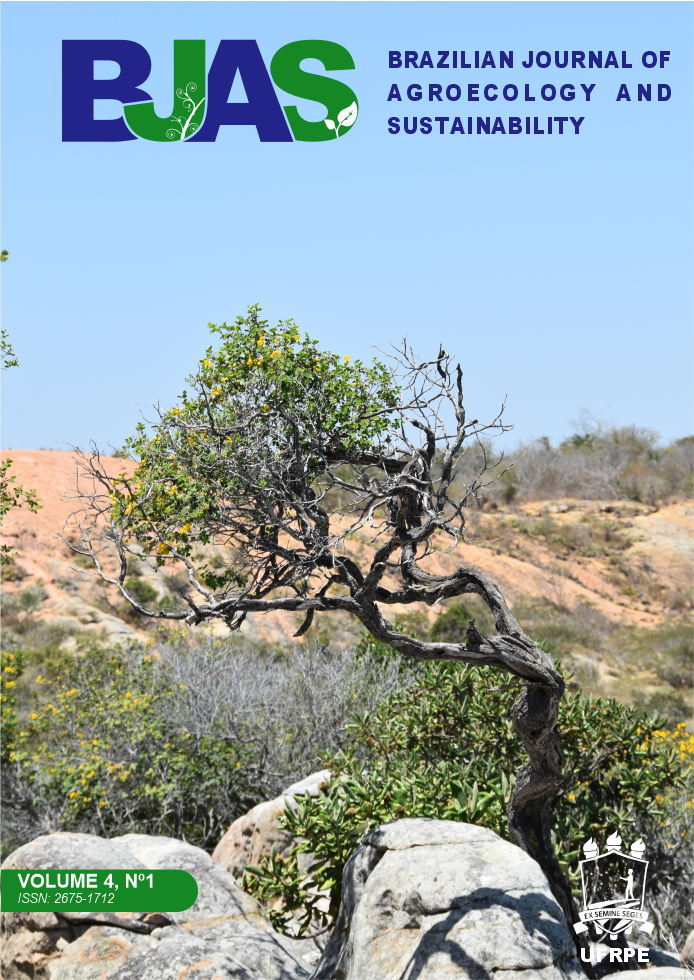“VÔ NA FEIRA” AS A TECHNOLOGICAL SOLUTION FOR AGRICULTURAL MARKET DURING THE COVID-19 PANDEMIC PERIOD
DOI:
https://doi.org/10.52719/bjas.v4i1.4196Abstract
Responsible consumption groups (GCR) are organized by individuals who want to create a market in which consumer relations are based on transparency between producers, coordinators and consumers. GCRs have a business model similar to that of open markets, that is, purchases and sales are carried out in person at a predetermined location. In 2020, the WHO (World Health Organization) declared the pandemic caused by Covid-19. The disease has a high contagion power, and some measures have been adopted to combat the spread of the virus, among which is social isolation. The main objective of the exposed project is to facilitate the management and communication of GCR participants, while benefiting the continuity of commercial activities through orders and home deliveries. In the development of the system, the Scrum methodology was used and five phases were adopted for the construction of the system: requirements gathering, modeling, architecture definition and, finally, implementation and evaluation of the software, called “Vô na Feira”. The developed system has specific functionalities for the coordinators and consumers of the GCRs. Among them, it is possible to highlight the creation of online market events, in which producers and available products are registered, and also the possibility of accessing each market, assembling product baskets and requesting their delivery. The obtained tool has an expressive potential in helping activities in the context of responsible consumption, as well as acting as a technological solution in the period of social isolation.Downloads
References
Freitas, O. (2020). Coronavírus faz número de pedidos delivery crescer. São Paulo: Universo Online. https://noticias.uol.com.br/videos/?id=coronavirus-faz-numero-de-pedidos-delivery-crescer-04024C98316CDCB96326.
Gaiger, L. I. (2013). A economia solidária e a revitalização do paradigma cooperativo. Revista Brasileira de Ciências Sociais, 28(82).
Pistelli, R. de S. S., & Mascarenhas, T. S. (2011). Organização de grupos de consumo responsável: caminhos para práticas de consumo responsável. São Paulo: Instituto Kairós. https://institutokairos.net/wp-content/uploads/2012/04/Grupos-de-Consumo.pdf.
Severino, A. J. (2007). Metodologia do trabalho científico (23a ed.). São Paulo: Cortez.
Schwaber, K. (2004). Agile project management with scrum (1a ed.). Microsoft Press.
Silva, S. P., & Carneiro, L. M. (2016). Os novos dados do mapeamento de economia solidária no Brasil: nota metodológica e análise das dimensões socioestruturais dos empreendimentos. Brasília, DF: IPEA. http://repositorio.ipea.gov.br/bitstream/11058/7410/1/RP_Os%20Novos
%20dados%20do%20mapeamento%20de%20economia%20solid%C3%A1ria%20no%20Brasil_2016.pdf.
Edmunds, A., Olszewka, M., & Waldén, M. (2016). Using the event-B formal method for disciplined agile delivery of safety-critical systems. Lisboa: The Second International Conference on Advances and Trends in Software Engineering. https://www.researchgate.net/publication/295546964_Using_the_Event-B_Formal_Method_for_Disciplined_Agile_Delivery_of_Safety-critical_Systems
Downloads
Published
How to Cite
Issue
Section
License
Copyright (c) 2022 Brazilian Journal of Agroecology and Sustainability

This work is licensed under a Creative Commons Attribution-NonCommercial-ShareAlike 4.0 International License.





